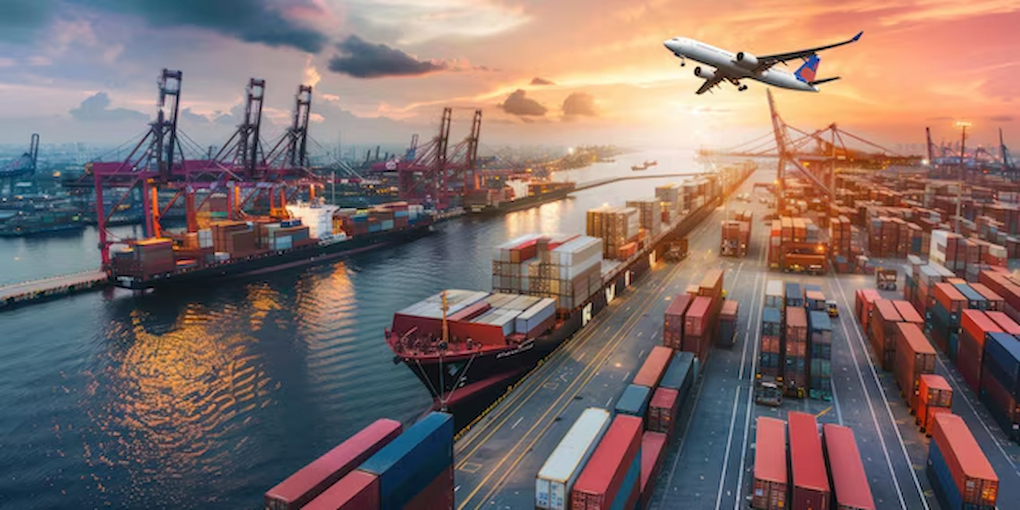Global shipping and logistics serve as the lifeblood of international commerce, connecting manufacturers, suppliers, and consumers across continents. As industries rely heavily on the seamless flow of goods, the efficiency of these systems determines the success of businesses and economies. This article dives deep into the significance, challenges, and advancements in global shipping and logistics.
Understanding Global Shipping and Logistics
Global shipping refers to the transportation of goods across international borders, often via sea, air, road, or rail. Logistics, on the other hand, encompasses the broader supply chain operations, including storage, inventory management, customs clearance, and last-mile delivery.
Together, these functions ensure goods move efficiently from origin to destination, meeting the demands of global trade.
Importance of Global Shipping and Logistics
- Facilitating Global Trade
By linking producers with global markets, shipping and logistics foster economic growth and international collaboration. - Supporting Consumer Needs
A robust logistics system enables faster delivery, enhancing customer satisfaction and accessibility to diverse products. - Economic Stability
Logistics create jobs and drive the GDP of many nations, particularly those with strategic ports and transport hubs. - Emergency Response
Efficient logistics are crucial for delivering humanitarian aid and disaster relief supplies to affected areas.

Challenges in Global Shipping and Logistics
- Rising Fuel Costs
Fluctuations in fuel prices directly impact shipping expenses, increasing overall costs for businesses. - Regulatory Complexities
Differing regulations and compliance requirements across countries complicate international shipments. - Supply Chain Disruptions
Events like pandemics, geopolitical tensions, and natural disasters disrupt supply chains, causing delays and shortages. - Environmental Concerns
With rising awareness about climate change, the shipping industry faces pressure to reduce its carbon footprint. - Technological Integration
Smaller logistics providers often struggle to afford and implement advanced technologies.
Innovations in Global Shipping and Logistics
- Artificial Intelligence (AI)
AI-driven analytics help forecast demand, optimize routes, and manage inventory efficiently. - Internet of Things (IoT)
IoT devices provide real-time tracking, offering greater visibility and control over shipments. - Blockchain Technology
By digitizing trade documents, blockchain enhances security, reduces fraud, and accelerates customs processes. - Green Shipping Solutions
The use of alternative fuels, such as liquefied natural gas (LNG), and energy-efficient ships is gaining momentum. - Autonomous Vehicles and Drones
Automated vehicles and drones revolutionize last-mile delivery, reducing human error and costs.
Strategies to Optimize Global Shipping and Logistics
- Diversify Supply Chains
Avoid reliance on a single source or route by establishing multiple suppliers and distribution channels. - Invest in Technology
Adopt digital tools to streamline operations, improve accuracy, and enhance customer experience. - Enhance Sustainability Practices
Implement eco-friendly initiatives like waste reduction and the use of renewable energy in warehouses. - Focus on Collaboration
Partner with reliable logistics providers and establish clear communication channels to handle complex shipping requirements. - Plan for Resilience
Develop contingency plans to manage disruptions and maintain operational continuity during crises.
Trends Shaping the Future of Global Shipping and Logistics
- Digital Transformation
Automation, robotics, and AI are transforming how goods are transported and delivered. - E-commerce Boom
The surge in online shopping has increased demand for fast, efficient, and flexible logistics solutions. - Focus on Sustainability
As governments and organizations push for green initiatives, the shipping industry will need to adopt more sustainable practices. - Regional Trade Growth
Agreements like the African Continental Free Trade Area (AfCFTA) and RCEP are expected to boost intra-regional trade. - Cybersecurity Concerns
With increased reliance on digital systems, the risk of cyberattacks poses a significant challenge for the logistics industry.
Conclusion
Global shipping and logistics are integral to modern commerce, ensuring that goods reach their destinations efficiently and sustainably. While the industry faces numerous challenges, innovations in technology and a focus on sustainability promise a brighter, more resilient future. As businesses adapt to these changes, they will find new opportunities to thrive in an increasingly connected world.






